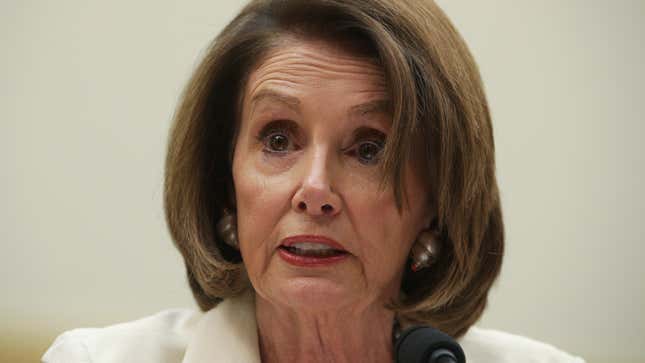

Earlier this summer, House Democrats were faced with the question of how to address the crisis at the southern border, a process that laid bare some of the Party’s divisions when it comes to funding our country’s cruel and increasingly deadly immigration enforcement regime. Democrats in the House first introduced a $4.6 billion border funding bill in June, which included some oversight and other safeguards designed to prevent the abuses that are currently rampant in both the camps at the border and within agencies like Immigration and Customs Enforcement and Customs and Border Protection. Of the Democrats in the House, only four—Alexandria Ocasio-Cortez, Ilhan Omar, Rashida Tlaib, and Ayanna Pressley—voted “no” on the initial House bill, seeing any funding for these agencies and detention facilities as, in the words of Ocasio-Cortez, “an abdication of power we should refuse to accept.” After the Senate passed its own funding bill that included significantly fewer restrictions on the funding, it appeared that the House would take up a debate on how to reconcile the two versions. Instead, Speaker Nancy Pelosi, bowing to pressure from centrist Democrats who objected to funding cuts to Immigrations and Customs Enforcement, announced that the House would take up and pass the Senate version.
It was a remarkable defeat for Pelosi, who reportedly agreed to it after being assured by the vice president that the Trump administration would “voluntarily abide” by the watchdog provisions that had been stripped from the original House bill, a promise that in light of the news coming from the border regions, is astonishing to accept on face value. Joined by more than 90 other Democrats, Tlaib, Ocasio-Cortez, Pressley, and Omar again voted “no.” “A vote for Mitch McConnell’s border bill is a vote to keep kids in cages and terrorize immigrant communities,” Omar wrote on Twitter, adding, “How can we trust Donald Trump won’t turn around and use this to fund his deportation plan or worse?”
In voting no on both bills, Tlaib, Ocasio-Cortez, Pressley, and Omar were making a moral and political point: to them, even the strings attached to the original bill were inadequate in the face of an administration that is almost singularly focused on dialing up cruelty and punishment for immigrants. They staked a position and voted on it, which is what they were elected to do. But in a recent interview with New York Times columnist Maureen Dowd, Pelosi suggested, dismissively, that their dissenting votes were mostly about projecting a certain image on social media. “All these people have their public whatever and their Twitter world,” Pelosi told Dowd. “But they didn’t have any following. They’re four people and that’s how many votes they got.”
-

-

-

-

-

-

-

-

-

-

-

-

-

-

-

-

-

-

-

-

-

-

-

-

-

-

-

-

-

-

-

-

-

-

-

-

-

-

-

-








































